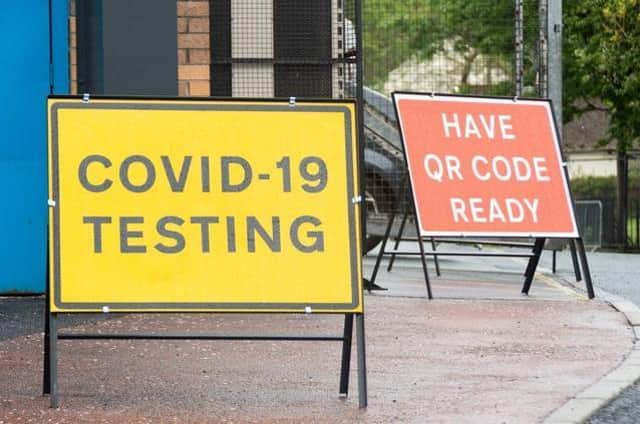Covid cases falling across Harrogate district - but has the Omicron wave really peaked?


After reaching record levels this month, Harrogate's infection rate has fallen by around 12%, yet the number of people catching the virus is still high with an average of 352 new cases each day.
Amanda Bloor, accountable officer of the NHS North Yorkshire Clinical Commissioning Group, said it is "too soon to say with certainty" that infections are now levelling off as she also warned there needs to be a degree of caution when interpreting the latest figures.
Advertisement
Hide AdAdvertisement
Hide AdShe said while the rates were down overall, cases were climbing in older age groups and that this was a worry for under pressure hospitals.
Ms Bloor also said recent challenges around testing could be depressing the true rates of infection.
"Now is certainly not the time for complacency," she said.
"The level of Covid-19 in our communities remains staggeringly high and regrettably, as the prevalence of Covid-19 spills over into older and more vulnerable parts of our society, we are beginning to see large numbers of people in North Yorkshire hospitalised with coronavirus."
It is these figures on cases ending up in hospital that could provide a better idea if the Omicron wave is peaking.
Advertisement
Hide AdAdvertisement
Hide AdLatest figures show the number of Covid-positive patients at Harrogate District Hospital currently stands at 22 - a figure which has been on the rise since mid-December.
However, only five of these are receiving treatment primarily for Covid and staff are finding a growing number of patients who are being admitted whilst unknowingly having the virus.
To gauge a better understanding of where the Omicron wave is heading next, health officials are looking to London where the faster-spreading variant first took off.
There is now a clear downward trend in hospital admissions in the capital, but the message from hospital staff here in North Yorkshire is clear - Omicron is still causing severe pressures and will continue to do so.
Advertisement
Hide AdAdvertisement
Hide AdMs Bloor said: "With a lag between infection and hospitalisation, our hospital and ambulance colleagues continue to plan for even tougher weeks ahead.
"In the meantime, we should all continue to play our part in slowing the spread of this virus and protecting our loved ones.
"The 'hands, face, space' message is as important now as it was at the beginning of the pandemic; and if you haven't had your Covid vaccine it's not too late to step forward and help protect yourself and those close to you."
Advertisement
Hide AdAdvertisement
Hide AdSelby currently has the highest weekly infection rate in North Yorkshire at 1,856 cases per 100,000 people, followed by Richmondshire at 1,738, Craven 1,659, Scarborough 1,650, Hambleton 1,609, Harrogate 1,533 and Ryedale 1,268.
The England and North Yorkshire averages are 1,674 and 1,618
Meanwhile, around 105,000 people in the Harrogate district have now received a booster vaccine, representing around 68% of the population.
Louise Wallace, director of public health for North Yorkshire, said vaccinations remain the best line of defence against Covid, but added it is estimated around 90,000 people across the county have yet to come forward.
Advertisement
Hide AdAdvertisement
Hide AdShe said: "We need to pull together on this and each and every one of us can play our part.
“The priority is for all eligible people to get boosted and vaccinated and also to follow essential public health guidance as we head into the difficult winter months - wear face masks when required; keep rooms ventilated and open to fresh air when meeting indoors, wash hands regularly and take a test when you go out to meet people.
"Please act now to protect yourselves, your loved ones and the county’s businesses and public services."
By Jacob Webster, Local Democracy Reporter